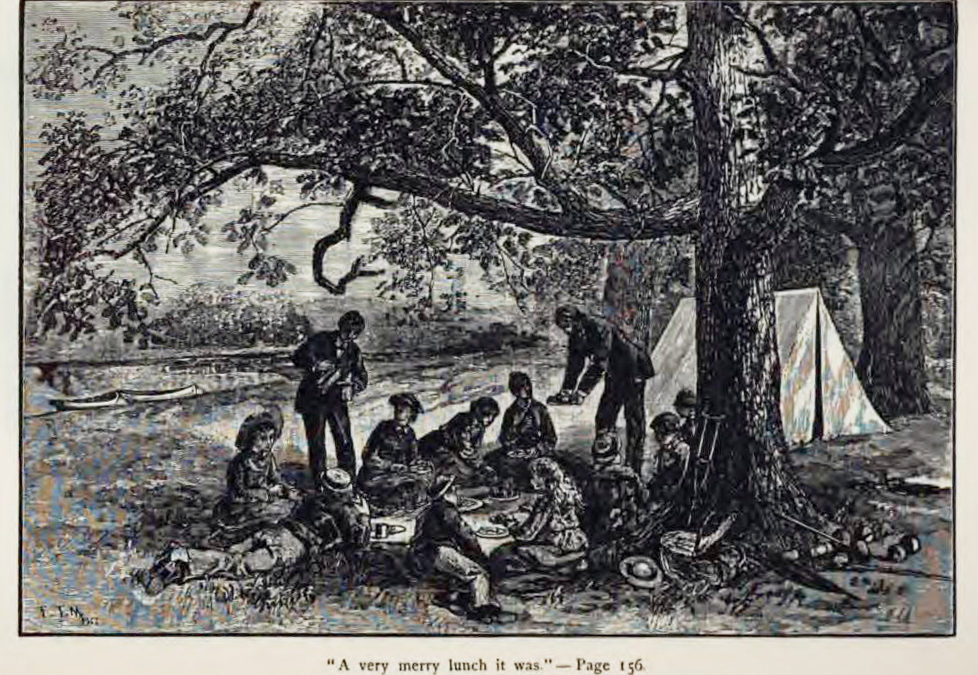“Sunshine and laughter are good omens for a pleasure party,” Alcott writes in Little Women. And when Laurie writes to Jo to explain his intentions, he promises sunshine and laughter.
Dear Jo,
What ho!
Some English girls and boys are coming to see me to-morrow, and I want to have a jolly time. If it’s fine, I’m going to pitch my tent in Longmeadow, and row up the whole crew to lunch and croquet: –have a fire, make messes, gipsey fashion, and all sorts of larks. They are nice people, and like such things. Brooke will go to keep us boys steady, and Kate Vaughn will play propriety for the girls. I want you all to come; can’t let Beth off at any price, and nobody shall worry her. Don’t bother about rations, –I’ll see to that, and everything else, – only do come, there’s a good fellow!
In a tearing hurry,
Yours ever,
Laurie”
At “Camp Laurence,” everyone mingles freely, and there is no protocol. Alcott calls it “a pleasing inequality.” Spirits are high, and no one minds though spiders fall into the berries and cream, acorns fall into the milk, black ants crawl on the plates, caterpillars fall from the tree, and a dog won’t stop barking.
Gretchen Anderson’s The Louisa May Alcott Cookbook is a valuable companion to the text, illustrated by Karen Milone (Boston: Little, Brown and Company, 1985). Featured Image: Frank Thayer Merrill. “Very Merry Lunch It Was,” in Louisa May Alcott. Little Women, or Meg, Jo, Beth, and Amy. Boston: Roberts, 1880.
See Little Women appeared in two volumes; Little Women in 1868 and Good Wives in 1869. The two were not issued in one book until 1880, with illustrations by Frank Thayer Merril. Also, Gret Gerwig’s Little Women (2019)
PS: Laurie is Theodore Laurence, 15; Meg is Margaret, 15; Jo is 14; Beth is 13, and Amy is 13.

